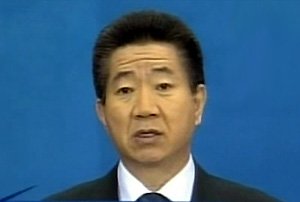http://www.timesonline.co.uk/article/0,,2-1499342,00.html
Flying Faulty Jumbo Across Atlantic Saves BA £100,000
By Ben Webster
Turning back after engine failure would have left airline liable to pay out for delays under new rules on compensation
A BRITISH AIRWAYS jumbo jet carrying 351 passengers was forced to make an emergency landing after an 11-hour transatlantic flight with a failed engine.
The fault occurred on take-off from Los Angeles but the pilot declined all opportunities to land in the US and instead continued on three engines for 5,000 miles to Britain.
The incident happened three days after a European regulation came into force requiring airlines to compensate passengers for long delays or cancellations. Under the new rules, if the pilot had returned to Los Angeles, BA would have been facing a compensation bill of more than £100,000.
Balpa, the British Air Line Pilots’ Association, gave warning last night that the regulation could result in pilots being pressured into taking greater risks for commercial reasons.
The regulation requires airlines to refund passengers the full cost of their tickets as well as flying them home if a delay lasts longer than five hours. Passengers must also be put up in hotels if the delay continues overnight.
The BA flight departed at 8.45pm on Saturday and the airline admitted that the delay would have been well over five hours if it had returned to Los Angeles.
BA initially claimed that the engine had failed an hour into the flight. But the airline admitted yesterday that the problem had occurred a few seconds after take-off when the Boeing 747 was only 100ft above the ground.
Air traffic controllers at Los Angeles spotted streams of sparks shooting from the engine and immediately radioed the pilot. He attempted to throttle the engine back but was forced to shut it down after it continued to overheat. The plane then began circling over the Pacific while the pilot contacted BA’s control centre in London to discuss what to do. They decided the flight should continue to London even though it would burn more fuel on just three engines.
The Boeing 747 was unable to climb to its cruising altitude of 36,000ft and had to cross the Atlantic at 29,000ft, where the engines perform less efficiently and the tailwinds are less favourable. The unbalanced thrust also meant the pilot had to apply more rudder, causing extra drag.
The pilot realised as he flew over the Atlantic that he was running out of fuel and would not make it to Heathrow. He requested an emergency landing at Manchester and was met by four fire engines and thirty firefighters on the runway.
Philip Baum, an aviation security specialist on board the flight with his wife and three daughters, said he had heard two loud bangs shortly after take-off. “The pilot came on to say we had lost an engine and he was negotiating about whether or not we should land back at Los Angeles.
“A few minutes later, I was amazed to see from the map on the TV screen that we were flying eastwards towards Britain. I would be disgusted if the issue of compensation had any bearing on the decision.”
BA said financial concerns had played no part in the decision. Captain Doug Brown, the senior manager of BA’s 747 fleet, said the only consideration had been “what was best for passengers”.
“The plane is as safe on three engines as on four and it can fly on two. It was really a customer service issue, not a safety issue. The options would have been limited for passengers [if the plane had returned to Los Angeles].” He said the pilot would have had to dump more than 100 tonnes of fuel before landing at Los Angeles. “The authorities would have had words to say about that.”
Captain Brown said pilots always took the final decision on any safety issue and would never choose to put themselves at risk. “Even without 350 passengers behind you, you are always going to be concerned about your own neck.”
But David Learmount, safety editor of Flight International, said: “It was a very odd decision to continue to London. Even if the pilot didn’t want to dump so much fuel, he could have diverted to Chicago.
“You are not as safe on three engines as you are on four and I suspect that, given the choice, most passengers would have opted to return to LA.”
Some airlines are trying to avoid paying compensation for delays involving technical failures of an aircraft. They are citing a clause in the regulation which excludes delays “caused by extraordinary circumstances which could not have been avoided even if all reasonable measures had been taken”.
But the Air Transport Users Council, which advises passengers on how to obtain their rights, said airlines would still be liable in cases involving engine failure because the cause was likely to be poor maintenance. Simon Evans, its chief executive, admitted that the regulation could lead to airlines taking greater risks. “We recognise there is a possibility that an airline might take a decision to fly in order to avoid paying compensation.”
Captain Mervyn Granshaw, Balpa’s chairman, said: “The EU regulation is poorly drafted and increases the pressure on pilots to consider commercial issues when making judgments in marginal safety situations.”





